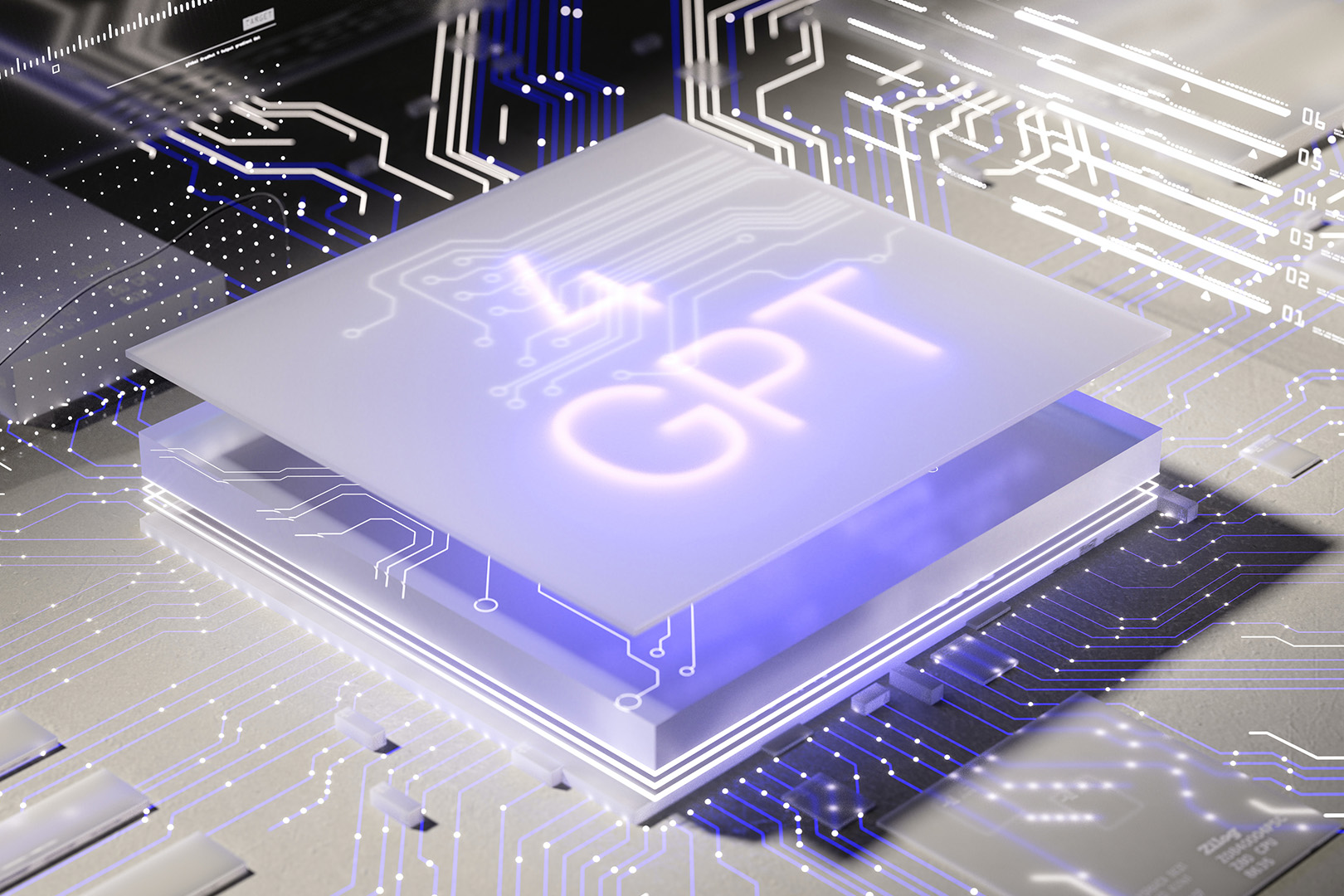
The U.S. Constitution constructs a patent as nothing but an “exclusive Right,” the very essence of a private property right. As such, for two centuries preceding 2006, over 90% of patent owners who won patent infringement cases were awarded injunctive relief. Infringers knew ahead of time that the courts would stop their infringement, which could cause them to lose all that they invested in the infringing line of business.
Would-be infringers developed different ways to address the problem of injunctions. They acquired startups and patents, licensed patents, designed around patents, and created opportunities for co-development and partnerships with patent owners. Competition increased because injunctions spurred innovation across the entire innovation ecosystem and allowed new entrants into markets saturated with huge incumbents.
In 2006, the Supreme Court changed all that in a case called eBay vs. MercExchange (eBay). eBay required a four-factor test to grant an injunction, causing injunctive relief to be denied for most patent owners. A working paper from Colorado College shows that eBay reduced injunctions by 91.2% for patent owners without a product and 66.7% for patent owners with a product.
If a would-be infringer believes they will not be stopped with a court-ordered injunction, they steal inventions and commercialize them massively. eBay effectively opened the floodgates to massive predatory infringement, destroying countless startups commercializing critical emerging technologies. The massive surge in predatory infringement is a primary reason that China took the lead in 37 of 44 technologies critical to our economic and national security.
The good news is Congress now recognizes the gravity of this problem and seeks to fix it. The bad news is they are effectively codifying the root of the problem.
eBay Causes Predatory Infringement
The eBay factors boil down to determining whether the patent owner has a product on the market. If the patent owner does, it suffers the irreparable harm of a loss of market share. But if the patent owner does not have a product, the court assumes monetary damages are sufficient, and no injunction is granted.
This judge-made law displays a critical misunderstanding of the market dynamics of introducing new products into markets saturated with huge incumbents.
Innovation introduces the risk of creative destruction to large corporations as existing products are replaced by new products. Prior to eBay, the cost of stealing patented technology was high – an injunction could shut down the entire line of business and all that was invested in the infringing product. But since, eBay, a huge corporation with the resources and capabilities needed to flood the market with infringing products, can run the resource-starved startup out of business. Once out of business, it has no product and is no longer eligible to get an injunction.
If a huge corporation steals an invention, it keeps it. On the outside chance the patent owner sues for patent infringement, the infringer will simply hire lawyers to clean up the mess. eBay effectively makes it the fiduciary duty of a CEO to steal patented inventions of smaller rivals. An untold number of startups have been destroyed.
eBay Reduces Investment in Early-Stage Startups
Often, patents are the only asset that can be collateralized by early-stage startups, so properly valuing patents is critical to determining the startup’s valuation. If the valuation of a patent is different depending on whether the startup or the investor owns the patent, it creates a mismatch of value that drives down the startup’s valuation.
Injunctive relief creates a willing buyer and a willing seller who arrive at a price. This allows a value to be ascribed to a patent that is directly related to the market it is projected to create.
Prior to eBay, startups and investors valued patents in the same way because both were eligible for injunctive relief no matter who owned the patent. However, eBay changed that by requiring the patent owner to have a product on the market to be eligible for an injunction.
If a startup is run out of business due to predatory infringement and is thrust into bankruptcy, its investors take ownership of the patents. Investors do not have products, so are not eligible for injunctions. While the startup may have been eligible for an injunction, the best an investor can expect is a forced license at an arbitrary value set by the court. There is no way to project the level of monetary damages any court will award, so eBay made it impossible to project a future market value for the patent for early-stage investment.
Post eBay, startups and investors arrive at very different values for a patented invention for early-stage investment. The investors’ value is much lower, which sets the valuation of the startup much lower. In many cases, particularly in critical emerging technologies, the startup cannot attract enough early-stage investment to make it to the next round of funding by experienced venture capitalists, so early-stage investors will not invest anything.
Also, driving down early-stage valuation, the high risk of predatory infringement caused by eBay could doom the startup, which further decreases the startup’s valuation.
eBay destroyed the economic model early-stage startups rely on to get started up by increasing the likelihood of predatory infringement and devaluing patents before an initial early-stage investment. The more valuable the invention, the more likely the startup will be denied early-stage investment.
eBay is unique to U.S. law. No other nation restricts injunctive relief in this way. So, while many startups cannot start up in the U.S., they can do so in other places, like China. eBay, therefore, is the primary reason that China now leads the U.S. in the majority of technologies critical to our national security and economic growth. eBay must be abrogated if the intention is to restore American innovation and take the lead back from China.
The RESTORE Act Perpetuates eBay’s Damage
The corporate lobbyists pushing RESTORE loudly claim it abrogates eBay, thereby restoring injunctions. That claim is false; RESTORE’s operative language effectively codifies eBay.
Without mentioning eBay at all, RESTORE’s Section 2 Findings correctly explains that eBay “created incentives for large, multinational companies to commit predatory acts of infringement, especially with respect to patents owned by undercapitalized entities, such as individual inventors, institutions of higher education, startups, and small or medium-sized enterprises.”
Under eBay, a patent owner must ask the court for an injunction and show that it survives the eBay factors. The adjudged infringer then counters also arguing the eBay factors.
While RESTORE articulates the negative effects of eBay in its Findings, eBay is not abrogated in any way. Its operative language simply adds a rebuttable presumption:
“REBUTTABLE PRESUMPTION.—If, in a case under this title, the court enters a final judgment finding infringement of a right secured by patent, the patent owner shall be entitled to a rebuttable presumption that the court should grant a permanent injunction with respect to that infringing conduct.’’
Under RESTORE, the patent owner asks the court for an injunction, but the rebuttable presumption means it does not need to overcome the eBay factors in its request. Because eBay is still law, the adjudged infringer will rebut the presumption using the eBay factors. Then, the patent owner will counter with why it survives eBay.
RESTORE changes the order but not the effects. The eBay factors will still guide the court’s decision to grant an injunction. Nothing changes except which party argues the eBay factors first.
Also concerning is that RESTORE is a rebuttable presumption to a possibility. The patent owner could survive the eBay factors, but the presumption is that a court merely “should” grant an injunction. Given the constant anti-patent drumbeat in academia, the commentariat, and the media largely funded by predatory infringers, the courts are authorized and encouraged to expand eBay’s doctrine even further.
Legislation That Fixes the Mess
The problem that Congress must grapple is that a patent is a personal property right constructed in the Constitution and codified in black-letter law, but it is now treated in the courts like a government franchise. If this is to continue, U.S. innovation will be forever handicapped in relation to the rest of the world.
The Restoring America’s Leadership in Innovation Act (HR 8134) (RALIA) uses much more effective language to restore injunctive relief.
(1) IN GENERAL.—Upon a finding of infringement of a patent, the court shall presume that further infringement of the patent would cause the patent owner irreparable harm. This presumption may be overcome only by a showing of clear and convincing evidence by the infringing party that the patent owner would not be irreparably harmed by further infringement of the patent. The patent owner is not required to make or sell a product covered by the patent to show irreparable harm.
(2) PATENT OWNER DEFINED.—In this subsection, a ‘patent owner’ means the owner of the patent or an exclusive licensee of the patent.’’.
(b) SENSE OF CONGRESS.—It is the sense of Congress that this section abrogates the Supreme Court’s ruling in and subsequent lower court interpretations of eBay v. MercExchange, 547 U.S. 388 (2006), which has been applied as a de facto presumption against granting patent owners injunctive relief.”
RALIA’s language fixes eBay in several ways. eBay is expressly abrogated. A presumption that the patent owner is irreparably harmed by the act of infringement is established. This presumption can only be overcome by a showing of clear and convincing evidence, and the presumption of irreparable harm cannot be overcome just because the patent owner does not have a product.
RALIA simply returns the rules of granting injunctive relief to the state it was in for two centuries preceding eBay. This aligns U.S. injunctive relief practices with the rest of the world and is a major step to rebuilding the U.S. innovation engine to compete with China.
Paul Morinville is Founder and Executive Director of SPARK Innovation. SPARK Innovation strives to create an policy environment where the conception, protection, and commercialization of technologies critical to our economic and national security prosper thereby enabling the United States to take back the global technological lead from China. Paul is an inventor and has been an executive at multiple technology startups including computer hardware, enterprise middleware, video compression software, artificial intelligence, and medical devices, and has licensed patents in the U.S. and China.







Stop talking and invest your money in investigating the people who hate inventors. Private detectives are able to identify irregularities perpetrated by the people who hate you. Icky, yes. Obscene, yes. You are either proud of your achievements, and and willing to take care of people who are undermining you, or you are a perpetual complainer.
John,
Unlike you (apparently) we are not all independently wealthy enough to pay for investigators. I have sat there and listened to people say, “You can’t just change the system with the stroke of a pen, it takes time!” I call BS! The system that bent us all over, AND has already cost millions upon millions to small inventors collectively, was created with the stroke of a pen.
Investigate? Sure! But only after we don’t have to spend that money fighting for what we have thought up, worked on, built, refined, patented, produced, sold, were admired, had the design stolen, wrote letters, hired lawyers, and still lost every single penny previously invested!
Make that part stop, so we can create and live.
It can be done with the stroke of a pen!
Hans, then consider this:
There is apparently a requirement that judges must be nominated by the President of the United States and be confirmed by the U.S. Senate. Not so the PTAB administrative judges. An official government website states: “The Patent Trial and Appeal Board (PTAB) is a tribunal within the United States Patent and Trademark Office (USPTO) that reviews rejections made by examiners in proceedings called ex parte appeals and decides patentability questions for issued patents raised by third parties in proceedings called AIA trials.” Another government website states: “The Director, the Deputy Director, the Commissioner for Patents, the Commissioner for Trademarks, and the administrative patent judges shall constitute the Patent Trial and Appeal Board.” These published statements serve as confirmation that patent examiners AND administrative judges are employees of the USPTO.
The USPTO is issuing documents equivalent to contracts stating unambiguously that the patent owner has specified rights, but curiously, suspiciously and very worryingly when these specified rights are infringed by INFRINGERS, the judges employed by the USPTO act NOT TO PROTECT THE INVENTORS but to FIND FAULT WITH THE WORDING OF THE CLAIMS of the patents, and in so doing ACTIVELY ASSIST THE PATENT INFRINGERS.
Mr Smith, a patent examiner who has worked for the USPTO for two decades, examines an application and AFTER REQUIRING THE APPLICANT TO AMEND THE WORDING of the claims, allows the patent. The patent is issued and published. The inventor is given a document signed by the Director of the USPTO. A few years later Mr Jones begins infringing the issued patent, and PAYS the USPTO to have the claims of the patent invalidated. The hearings are presided over by USPTO employees and are held in USPTO rooms and not in neutral settings.
Nearly 500 individually owned and small business patents are being invalidated every year on behalf of large corporations. The inventions are undoubtedly genuine, but THERE IS A PROBLEM WITH THE WORDING OF THE CLAIMS. In plain language USPTO employees are collaborating with USPTO employees to sell FAKE patents. Inventors are obviously loath to portray the fruits of their hard work over many years in this way, and this appears to be the reason inventors have not combined their efforts to take on the USPTO for committing premeditated wholesale fraud and suing for billions of dollars in damages.
Johan, Your comment “Inventors are obviously loath to portray the fruits of their hard work over many years in this way, and this appears to be the reason inventors have not combined their efforts to take on the USPTO for committing premeditated wholesale fraud” is spot on. We need to act together to get this mess fixed. I founded US Inventor in 2013 and built it to over 80,000 members. I left USI becasue it is focused on independent inventors while my background is in early-stage startups having started up many companies and inventing the core enabling technology in multiple industry standards of enterprise middleware. I have a new startup firm focused on early-stage startups. Every inventor is a startup, so the needs are similar – just to focus is different. Go to http://www.sparkinnovationinc.org and sign up.
I forgot to mention that USPTO administrative judges are GIVEN BONUSES for “blowing away” a larger number than budgeted patents. There is surely only one way to interpret this?
Great article, but minor quibble with, “This judge-made law displays a critical misunderstanding of the market dynamics of introducing new products into markets saturated with huge incumbents.” The are fully aware of these dynamics and forced through the eBay case precisely to make blatant infringement safe for established business. The people behind the eBay decision are evil, not stupid.
Even the RALIA is more of a band aid than a true fix. What is so difficult to understand about, “the right to exclude”? If strangers moved into an unused bedroom in your house, would it be acceptable for a court to tell you, “Well, you weren’t using it anyway, and as long as they pay a ‘reasonable’ rent, what’s the problem?”
Excellent point. When all mistakes go in the same direction, they are not mistakes… they are a plan. eBay, KSR, PTAB, Alice, etc.
Thank you for all you do Paul Morinville you took the bill by the horns
There appears to be another way of looking at the situation.
Stephen T. Schreiner highlighted by far the biggest problem facing idividual inventors in the USA today. He wrote an article about the Patent Trial and Appeal Board (PTAB) that was featured on the IPWatchdog Daily news, Events, Jobs & Press Releases dated January 13, 2025. He explained that:
“Ultimately, we are confronted with this fundamental fact: At one end of the pipeline, we have the USPTO examining corps examining applications and issuing patents. At the other end of the pipeline, another body in the USPTO is finding all challenged claims of patents invalid over 70% of the time when the patent is reviewed. Something seems awry from a systems perspective.”
In plain English the USPTO is requesting and accepting money for examining and issuing of patent documents that are a form of contract that give the owners of the patents the right to take preventative action against infringers, but then proceeds to assist infringers by requesting and accepting money for the purpose of challenging its own examinations and thereby effecting invalidation of the majority of the contracts.
Why is it so difficult for people to describe this for what it is? For patents examined before September 16, 2012, it is a breach of contract. After September 16, 2012, fraud. Politicians have regrettably proved themselves to be deaf to inventors’ words. People do not plead with thieves, for example, to return their cars. These developments require resolute action.
Johan, It is certainly a breach of contract, but it is much worse than that. It is a destroyed property right, which is the foundation of the American free market economic system. While contracts are very important, if there were no property rights, there would be few contracts because in the end, most contracts effect property in some way. This attack on patents is the continuation of an attack on property rights by our own government. For example, in Kelo v. New London in 2005, the Supreme Court held that using eminent domain to transfer land from one private owner to another private owner to further economic development does not violate the Takings Clause. A similar wrongheaded argument is used to support the PTAB: It’s OK to take patents from inventors if a big corp has already put the invention into the stream of commerce because it benefits the public and enforcing the patent could cause economic damage by harming the big corp implementing the invention. Senator Tillis and Representative Issa, the Republicans who chair the IP Subcommittees in the Senate and House and thereby control patent legislation, obviously see it that way given their proposed legislation codifying the destruction of patent rights (PREVAIL, PERA, RESTORE and others). These people need reeducation on free market economic systems before they take us down with their doltish stupidity.